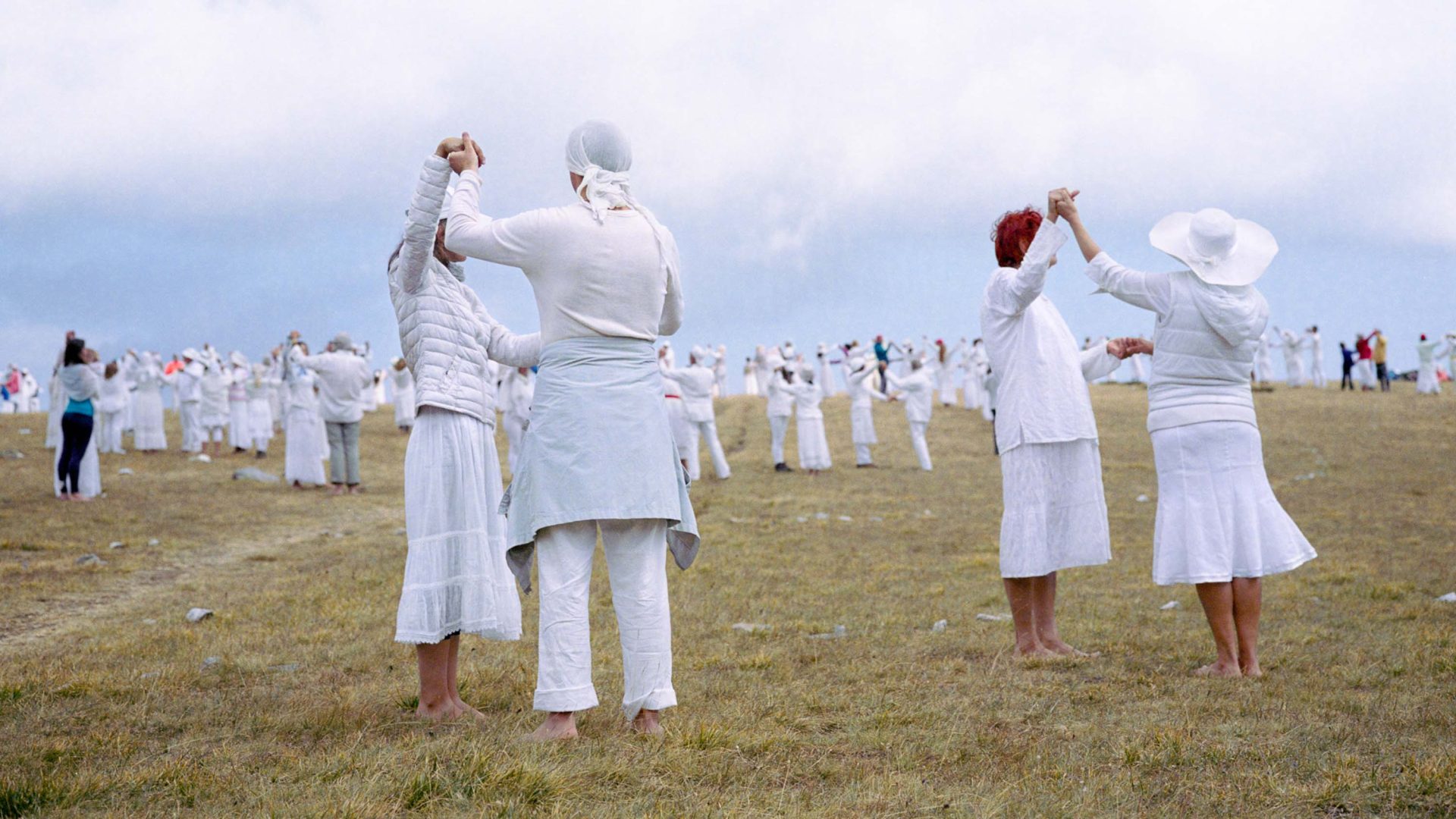
Stumbling upon a momentous gathering in the Bulgarian Alps, photographer Marco Gehlhar captured one spiritual group’s reverence for nature through the universal languages of dance, music and community.

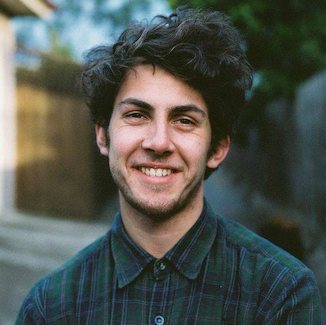
Stumbling upon a momentous gathering in the Bulgarian Alps, photographer Marco Gehlhar captured one spiritual group’s reverence for nature through the universal languages of dance, music and community.
Cosmic destiny or random chance, German-Italian photographer Marco Gehlhar’s encounter in Bulgaria’s Rila Mountains felt like it was meant to be. From atop the country’s highest mountain range, he looked down on the Universal White Brotherhood (UWB)—a 20th-century religious movement teaching harmonious connection with nature—amid their annual gathering. It’s worth noting that the name of the group does not refer to race, but to the “aura of white light that surrounds” the devotees of the Brotherhood.
Raised in a “beautiful place” in the Alps along the German-Austria border, Gehlhar has long been sympathetic to the idea that our connection with nature is more spiritual than temporal. Yet it was a fascination with Brutalist architecture that drew him to Bulgaria and its capital, Sofia. After spending several days wandering the austere streets, Gehlhar decided it was time to reunite with the natural world.
“Sofia is a very Soviet city, in an East Berlin sense,” says Gehlhar. “It can be grim and a little menacing, so I wanted to get out of that. The Rila Mountains are only a couple of hours away, so I went for a hike there.”
Reaching a summit overlooking the Rila Seven Lakes—a group of glacial lakes at over 2,000 meters above sea level—he gazed across the basin below only to discover hundreds of people moving in unison. Dressed head-to-toe in white and participating in what looked like Tai Chi, Gehlhar later learned that he’d stumbled upon the UWB’s eye-catching annual event. Held on August 19—supposedly when the site’s cosmic energies are strongest—it marks the beginning of the group’s divine year.
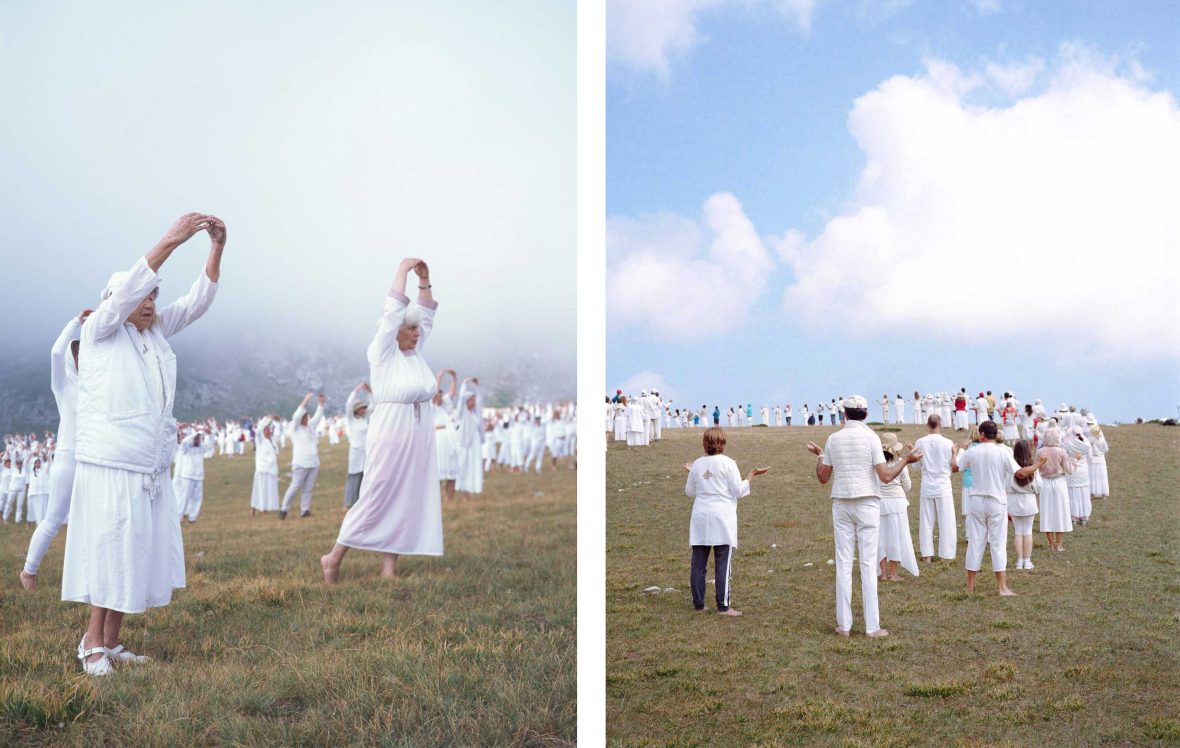
“I went there completely naive, without knowing anything about it,” says Gehlhar, explaining how followers from around the globe congregate for spiritual teachings about the innate connection between humans and nature. “There was a band playing in the middle of the circle where people form. It was very emotional—it almost brought me to tears because the music and movements were so beautiful.”
“I think spirituality is something you can’t take away from human beings—it’s innate in us. We will always long to know who we are, why we’re here and what’s the meaning of all this.”
- Marco Gehlhar
Although he didn’t know the term at the time, this sacred combination of music and dance is the group’s most famous practice: Paneurhythmy. While the UWB was founded in 1897 by Bulgarian philosopher Peter Deunov, he would later develop the three core parts that make up this harmonious exercise in the 1930s. Now, it defines the group’s conscious exchange with nature alongside other customs like yoga, meditation and vegetarianism.
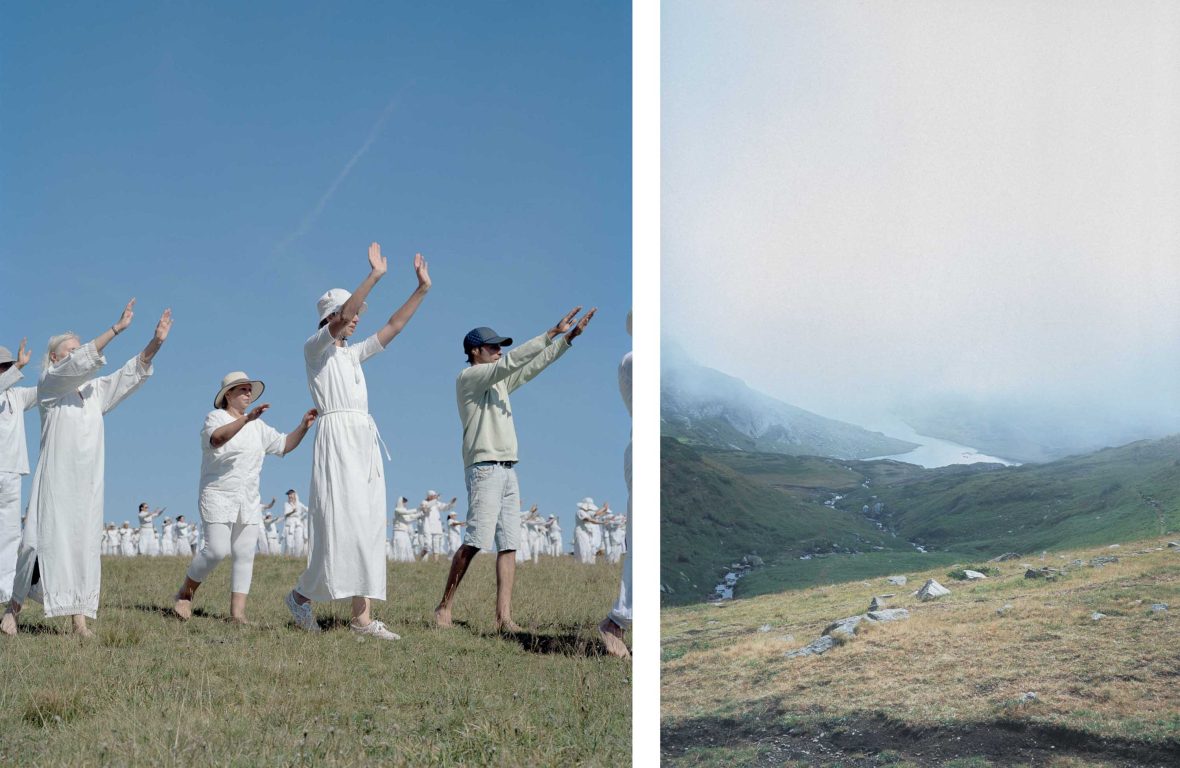
Taking some photographs in the moment, Gehlhar returned a year later to document the practice with purpose. Joined by friend and filmmaker Alicia Fassi, the duo worked on a short film alongside Gehlhar’s series, titled ‘In Light.’ At first, they had only planned to capture this unique mountain ritual. However, their project soon expanded, with Gehlhar and Alicia delving into decades-old footage of workshops and retreats to learn more about UWB practices.
“Falling into the rabbit hole came a bit later, as our story developed into a piece that required us to incorporate this archival footage,” says Gehlhar. “We just wanted to document the ritual, but we thought it would be interesting to do a more complete investigation into this new religious movement.”
Gehlhar isn’t unaccustomed to capturing what spirituality means in the present day. Much of his photographic work has centered on how the divine beliefs that underpin outsider groups and modern religions are shaped by contemporary society. For example, his ongoing series, ‘The Great Filter,’ explores the blurred line between science and folklore through those dedicated to finding extraterrestrial life.
“I think spirituality is something you can’t take away from human beings—it’s innate in us. We will always long to know who we are, why we’re here and what’s the meaning of all this,” says Gehlhar. While the focus of his work in Bulgaria differs from documenting those listening for intelligence in outer space, he says both rely on spirituality: “Looking outward and inward can be very much the same thing when trying to escape your boundaries.”
With the New Religious Movement rising to prominence in the 19th century, Gehlhar suggests the lack of answers provided by traditional religions pushed some pious people in another direction. Finding spiritual meaning in alternative faiths, many of these emphasize personal development through a cosmic connection to nature. For Gehlhar, his time spent capturing the UWB and its practices was profound.
“It’s powerful because you’re interacting with nature and your surroundings. You’re really soaking in the wind and the sun. It’s a kind of performance that touches your mind and body,” describes Gehlhar.
“I always have a slightly bittersweet feeling when I see such beautiful landscapes.”
- Marco Gehlhar
In the serene area surrounding Babreka Lake, Gehlhar observed sunrise and sunset yoga, where meditation and prayer are used to showcase gratitude. He also shared meals with followers and onlookers who had traveled to witness the event. While he often encountered a language barrier, simple conversations told through facial expressions and hand gestures helped him appreciate the community’s elemental philosophy even more.
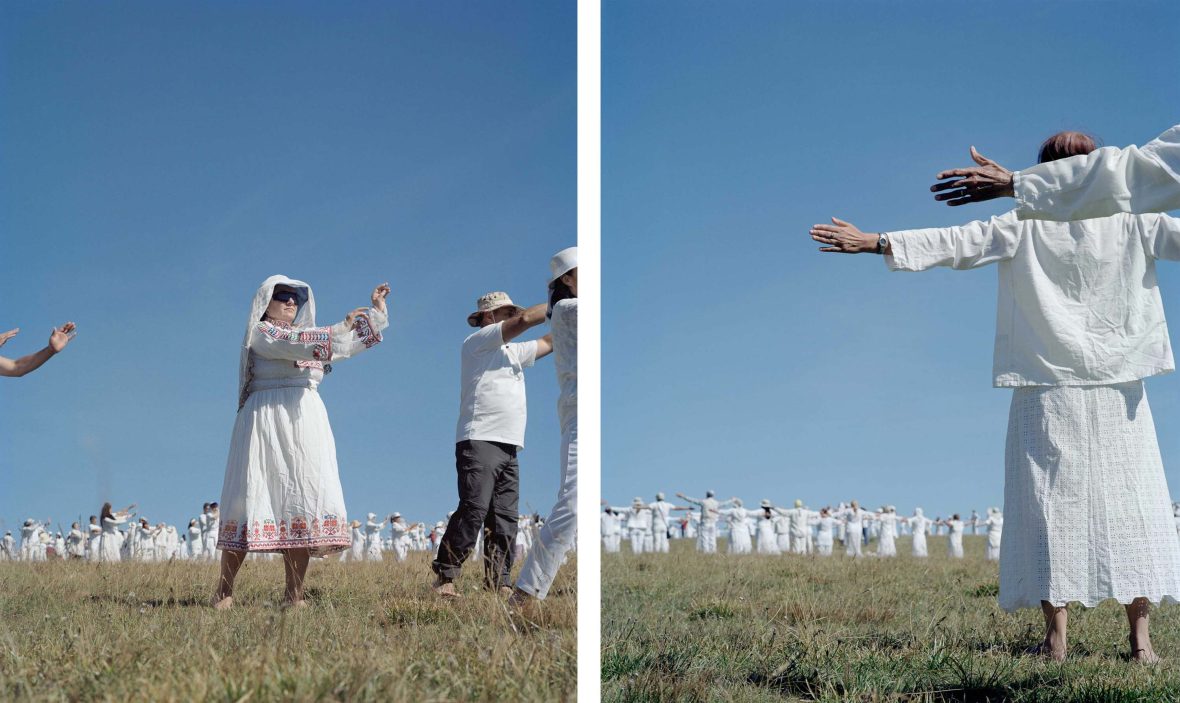
Through these conversations, Gehlhar learned how climatic changes now threaten this spiritual homeland. As the alpine landscape adapts to rising temperatures and reduced precipitation, the region’s prominent glaciers have retreated significantly over the last century while logging – legal and otherwise – endanger highland forest ecosystems. According to Gehlhar, the UWB sees these changes as symbolic of society’s need to embrace nature.
“In the archival footage, we saw pictures of the glaciers from almost 100 years ago—they’ve reduced something like two-thirds in size. This is very much affecting the Brotherhood, as these are sacred lakes,” says Gehlhar. “I always have a slightly bittersweet feeling when I see such beautiful landscapes. If we continue down this path, many things we see won’t be there in 40 or 50 years.”
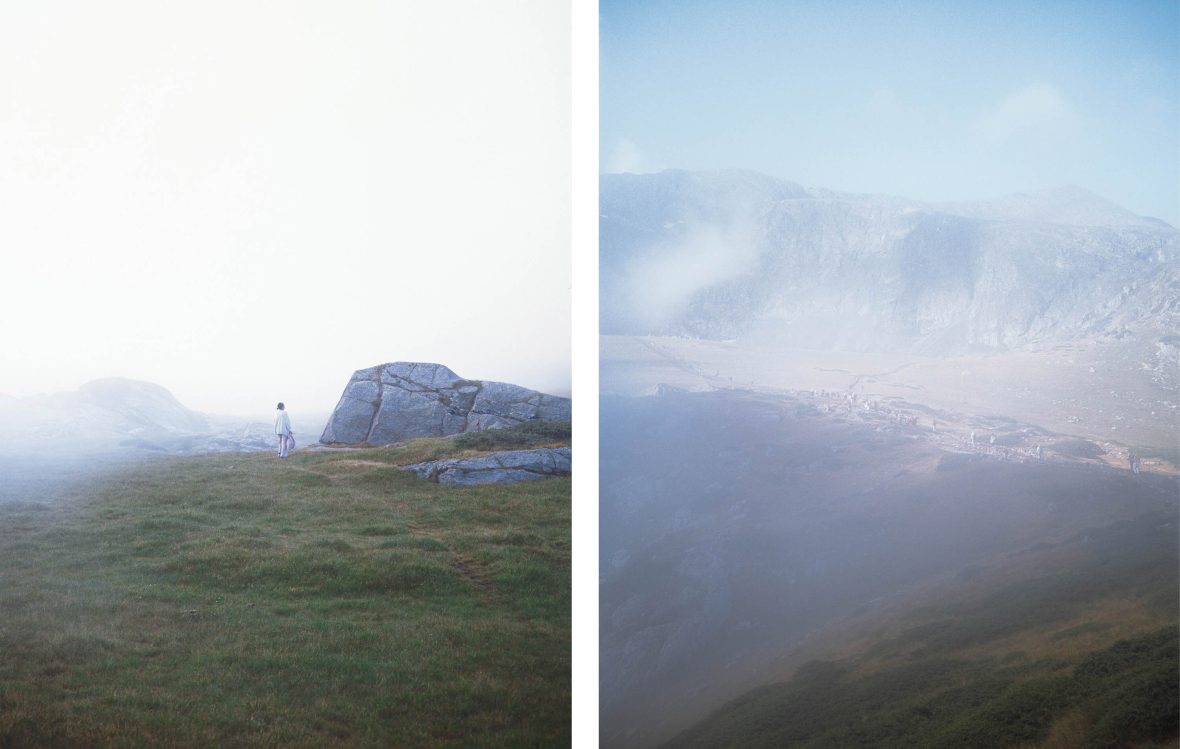
Gehlhar also explains how expanded tourism to the Rila Mountains, a popular winter sports destination, also impacts the area. Despite protests from environmentalists, a controversial ski lift was opened on the slopes, allowing vast numbers of visitors to commute up and down the mountain each day. Also seen in the nearby Pirin National Park, parts of the mountainside were deforested to make way for new roads, infrastructure and tourist accommodation.
Reflecting on his time spent documenting these alternative groups, Gehlhar notes how he’s never been able to fully embrace religion in his own life. While he’s drawn to the connection it provides, he describes how pragmatic skepticism stops him from becoming a follower himself. Yet the UWB’s sense of spirituality that encourages people to look beyond their boundaries and honor the natural world has left an undeniable imprint.
“Not only people who are part of the movement go to the gathering. You’ll see all sorts of people, from hippies to professors,” says Gehlhar. “It’s a moment of community and fraternity for everybody.”
***
Adventure.com strives to be a low-emissions publication, and we are working to reduce our carbon emissions where possible. Emissions generated by the movements of our staff and contributors are carbon offset through our parent company, Intrepid. You can visit our sustainability page and read our Contributor Impact Guidelines for more information. While we take our commitment to people and planet seriously, we acknowledge that we still have plenty of work to do, and we welcome all feedback and suggestions from our readers. You can contact us anytime at hello@adventure.com. Please allow up to one week for a response.






Can't find what you're looking for? Try using these tags: